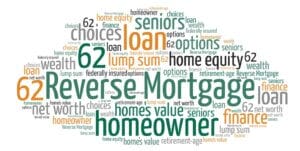Hard money and DSCR loans serve different investment needs in real estate financing. You’ll find hard money loans offer quick funding (3-7 days) with higher interest rates (8-15%), making them ideal for short-term projects and urgent capital needs. DSCR loans take longer to process (14-30 days) but provide lower rates (5.5-8.5%) and focus on your property’s income potential rather than your personal creditworthiness. While hard money emphasizes property value and requires minimal documentation, DSCR loans need proof that rental income can cover debt payments. Your choice depends on factors like timeline, property type, and investment strategy – let’s explore which option aligns with your goals.
Hard Money Loan Basics

Real estate investors often turn to hard money loans as quick-funding solutions for their investment properties. These specialized loans offer unique advantages through their loan flexibility and streamlined approval processes, making them particularly attractive for time-sensitive deals. You’ll find that hard money loans are primarily secured by the property itself, rather than your personal creditworthiness.
As an investor, you’ll benefit from several key features that distinguish hard money from traditional financing. The quick approval process typically takes days rather than weeks or months, allowing you to capitalize on immediate opportunities. Property security means you can leverage the asset’s value rather than solely relying on your credit score or income documentation.
The investor benefits extend beyond speed and accessibility. You’ll have more negotiating power with flexible terms that traditional lenders rarely offer. Whether you’re planning to fix and flip, acquire a multifamily property, or need bridge financing, hard money loans can accommodate various investment strategies. While these loans often carry higher interest rates, they make up for it through their convenience, speed, and ability to help you secure profitable investment opportunities before they slip away.
DSCR Loans At A Glance

While hard money loans prioritize speed and asset value, DSCR (Debt Service Coverage Ratio) loans focus on a property’s income potential. You’ll find these loans particularly appealing if you’re looking to build a rental property portfolio, as they evaluate the property’s ability to generate income rather than your personal income or credit history.
One of the key DSCR benefits is the streamlined qualification process. You won’t need to provide extensive personal financial documentation, making loan flexibility a standout feature for various investment strategies. The approval primarily depends on whether the property’s rental income can sufficiently cover the monthly mortgage payments and associated expenses.
DSCR loans cater to different borrower profiles, from seasoned investors to newcomers in real estate investing. They’re especially valuable for financial planning purposes, as you can scale your investment portfolio without your personal income limiting your borrowing capacity. You’ll typically need a DSCR ratio of 1.25 or higher, meaning the property should generate at least 25% more income than its monthly debt obligations. These loans have become increasingly popular among investors seeking to maximize their real estate holdings while maintaining financial independence.
Key Differences Between Financing Options

When comparing hard money and DSCR loans, you’ll notice distinct characteristics that serve different investment needs. Your investment strategy will largely determine which financing option fits best, as each loan type offers unique advantages in the real estate market.
| Aspect | Hard Money Loans | DSCR Loans |
|---|---|---|
| Approval Speed | 3-7 days typically | 14-30 days on average |
| Funding Sources | Private lenders & investors | Traditional & institutional lenders |
| Borrower Profile | Real estate investors needing quick capital | Long-term rental property investors |
The flexibility comparison between these options reveals that hard money loans excel in short-term scenarios, particularly for fix-and-flip projects or urgent acquisitions. On the other hand, DSCR loans are better suited for long-term rental property investments where stable income is paramount.
Your choice might depend on various factors, including your investment strategies and timeline. Hard money loans offer faster approval speed but typically come with higher interest rates. DSCR loans, while taking longer to process, often provide more favorable terms for sustained rental property ownership. Understanding these key differences will help you align your financing choice with your investment goals.
Borrower Qualification Requirements

Understanding borrower qualification requirements marks a crucial step in choosing between hard money and DSCR loans. While hard money lenders primarily focus on property equity and collateral value, DSCR loans emphasize the property’s income-generating potential to determine eligibility.
For hard money loans, you’ll find that borrower income verification is often less stringent, with lenders placing more weight on your property’s value and your exit strategy. Credit considerations play a minimal role, though some lenders may require a baseline score of 600. The loan terms typically range from 6 to 24 months, offering repayment flexibility through balloon payments or interest-only options.
DSCR loans, however, require you to demonstrate that your property’s rental income can sufficiently cover the debt payments. You’ll need to maintain a debt service coverage ratio of at least 1.25, meaning the property generates 25% more income than its monthly debt obligations. While credit requirements are stricter than hard money loans, typically demanding scores above 640, these loans offer longer terms and more traditional repayment structures. The property’s potential cash flow becomes your primary qualification factor rather than your personal income.
Costs And Interest Rate Analysis

The cost structure between hard money and DSCR loans presents notable differences that impact your investment strategy. You’ll find that hard money loans typically carry higher interest rates, ranging from 8-15%, due to their short-term nature and quick approval process. DSCR loans, however, often feature more competitive rates between 5.5-8.5% because they’re based on property income potential rather than borrower qualifications.
| Cost Factor | Hard Money | DSCR Loans |
|---|---|---|
| Interest Rate | 8-15% | 5.5-8.5% |
| Origination Fees | 2-5 points | 1-2 points |
| Loan Duration | 6-24 months | Up to 30 years |
When comparing fee structures, you’ll notice hard money loans include higher origination fees, typically 2-5 points of the loan amount. DSCR loans’ fee comparisons show lower upfront costs at 1-2 points. Interest calculations also differ considerably – hard money loans often use simple interest with shorter repayment terms, while DSCR loans utilize amortized schedules over longer periods. Understanding these cost structures is essential as they’ll directly affect your investment’s profitability and cash flow management.
Property Types And Usage

Both hard money and DSCR loans serve different property types, though their usage requirements vary considerably in scope and flexibility. When you’re exploring property investment strategies, you’ll find that hard money loans work well for fix-and-flip projects, new construction, and commercial properties requiring significant renovations. These loans don’t typically restrict your property choices, making them ideal for diverse real estate market trends.
DSCR loans, however, focus primarily on income-producing properties. You’ll need to demonstrate effective rental property management skills since these loans specifically evaluate your property’s ability to generate sufficient rental income. They’re particularly suited for multifamily units, single-family rentals, and commercial properties with established tenants.
Your property value assessment plays an important role in both loan types, but they evaluate it differently. Hard money lenders focus on the property’s after-repair value when considering financing for renovations, while DSCR lenders emphasize current market value and rental income potential. You’ll find hard money more flexible for distressed properties needing substantial work, whereas DSCR loans favor stabilized properties with consistent income streams.
Risk Assessment For Lenders

Every lender faces unique risk factors when evaluating hard money and DSCR loans. Your understanding of these risks will help you make informed lending decisions and protect your investment portfolio.
When considering hard money loans, lender due diligence focuses primarily on the property’s value and condition, as these loans are asset-based. You’ll need to implement risk mitigation strategies like requiring higher down payments and conducting thorough property inspections. Market volatility impact plays a significant role, as property values can fluctuate markedly in different economic conditions.
For DSCR loans, you’ll find that borrower creditworthiness assessment takes a back seat to the property’s income potential. Instead, you’ll analyze the debt service coverage ratio to guarantee the property generates sufficient rental income to cover loan payments. Portfolio diversification becomes essential, as you’ll want to spread risk across different property types and geographical locations.
Both loan types require careful evaluation of exit strategies, whether through property sale or refinancing. You’ll need to maintain strict underwriting standards and regularly monitor market conditions to protect your investments. Remember that proper documentation and legal compliance are critical components of your risk management approach.
Frequently Asked Questions
Can I Switch From a Hard Money Loan to DSCR During the Term?
Yes, you can switch from a hard money loan to a DSCR loan through loan refinancing options. You’ll need to meet borrower qualifications, including demonstrating sufficient rental income from your investment property. Your change strategies should focus on timing the switch when you’ve established stable rental income. Consider interest rate comparisons carefully, as DSCR loans typically offer better long-term rates than hard money loans, making them an attractive refinancing choice.
Are Prepayment Penalties Different Between Hard Money and DSCR Loans?
You’ll find that prepayment structures vary considerably between these loan types. Hard money loans typically offer more borrower flexibility with shorter loan durations, often having minimal or no prepayment penalties since they’re designed for quick turnarounds. DSCR loans, however, usually come with stricter lender policies and more substantial prepayment penalties because they’re structured for longer-term investments. Your investment strategy should factor in these differences when choosing between the two options.
How Quickly Can I Get Approved for Either Loan Type?
You can typically get hard money loan approval within 24-48 hours, with funding in 3-7 days due to minimal documentation requirements and high lender responsiveness. DSCR loans have a longer approval timeline of 2-3 weeks because of more complex application requirements. Your loan processing speed largely depends on how quickly you can provide necessary paperwork, but hard money’s streamlined process consistently offers faster closings than DSCR options.
Do These Loans Report to Credit Bureaus Differently?
Yes, they’ll report differently to credit bureaus. Hard money loans often don’t appear on your credit report since they’re typically asset-based and managed by private lenders. However, DSCR loans usually show up on your credit report like traditional mortgages, impacting your credit score. The loan reporting differences affect your overall financial transparency – while DSCR loans contribute to your credit history, hard money loans generally have minimal borrower implications on your credit profile.
Can Foreign Investors Qualify for Hard Money or DSCR Loans?
Yes, you can qualify for both hard money and DSCR loans as a foreign investor. Your foreign investor eligibility often depends on the property type and location. When comparing loan terms, you’ll find that hard money lenders typically focus more on the property’s value, while DSCR loans evaluate the property’s income potential. Interest rates may be slightly higher for foreign investors, but funding sources remain accessible through various private lenders and investment groups.






















